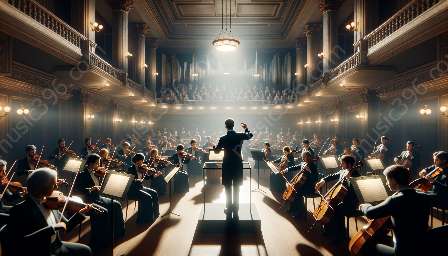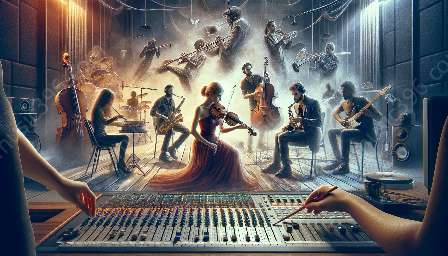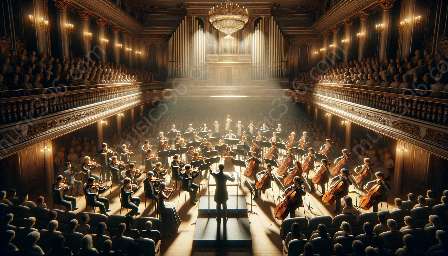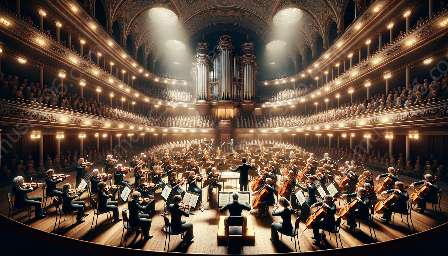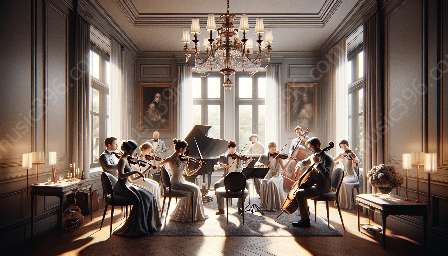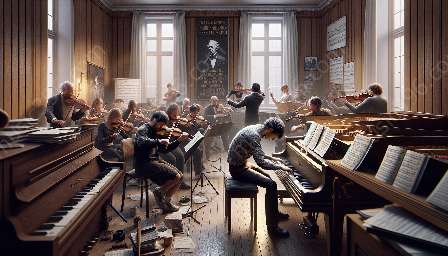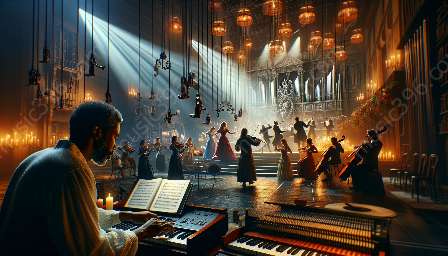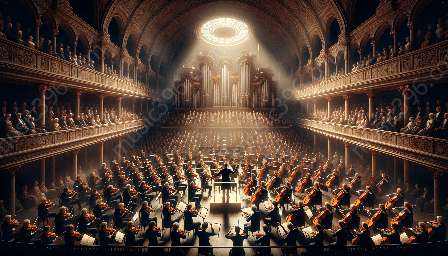Conducting a classical orchestra is a highly demanding and prestigious role that requires a unique set of skills and techniques. A conductor serves as the leader of the orchestra, responsible for shaping the interpretation and expression of the music. This article will explore the essential skills needed to excel in conducting a classical orchestra and provide insights into classical music skills and techniques.
The Conductor's Role in Classical Music
In the realm of classical music, the conductor acts as the guiding force behind the orchestra's performances. They not only keep time but also shape the dynamics, phrasing, and overall interpretation of the music. A skilled conductor can transform a piece of music into a captivating and emotionally stirring experience for both the musicians and the audience.
Essential Skills for Conducting a Classical Orchestra
Conducting a classical orchestra requires a diverse set of skills that encompass musical, technical, and interpersonal abilities. Let's delve into the key skills essential for excelling in this esteemed role:
1. Musical Knowledge and Interpretation
One of the most fundamental skills for a conductor is an in-depth understanding of musical theory, harmony, and structure. They must possess a thorough knowledge of the score, including the relationship between different instruments and the nuances of musical expression. Mastery of musical interpretation allows a conductor to communicate their vision effectively to the orchestra and bring out the intended emotion and depth of the music.
2. Mastery of Baton Technique
Conducting a classical orchestra involves precise and expressive gestures that convey musical directions to the musicians. The use of the baton, a small tapered stick, demands finesse and control to articulate clear and nuanced movements. A conductor's baton technique influences the orchestra's dynamics, articulation, and overall musicality.
3. Communication and Leadership
Effective communication and strong leadership are essential for a conductor to convey their musical ideas and maintain cohesiveness within the orchestra. Clear and confident direction, along with the ability to inspire and motivate musicians, is crucial for achieving an exceptional and unified performance.
4. Rehearsal and Score Study
Conductors spend extensive time studying the musical score, analyzing its intricacies, and envisioning how to bring out the best in the music. This preparation allows conductors to efficiently guide rehearsals, address technical challenges, and shape the orchestra's performance to align with their artistic vision.
5. Interpretive and Expressive Skills
A conductor's ability to convey the emotional depth and narrative of the music through expressive gestures and nuanced interpretation is paramount. They must create a compelling and cohesive musical narrative, eliciting a range of emotions from the orchestra to captivate the audience.
Techniques in Classical Music
In the realm of classical music, various techniques contribute to the refinement and mastery of musical performance. These techniques encompass instrumental proficiency, musical expression, and historical contextualization, among others. Let's explore some of the fundamental techniques that are integral to excelling in the realm of classical music:
1. Instrumental Proficiency
Mastering an instrument is a foundational requirement for any classical musician. Whether it's the violin, piano, cello, or flute, instrumental proficiency demands technical agility, tonal control, and a thorough understanding of musical phrasing and interpretation.
2. Interpretative Expression
Classical musicians are adept at infusing their performances with nuanced and expressive qualities that breathe life into the music. Interpretative expression encompasses the ability to convey emotions, tell a story through music, and capture the essence of a composer's intentions.
3. Historical Contextualization
Understanding the historical and cultural contexts of the music being performed is essential for bringing authenticity and depth to classical performances. A deep appreciation for the musical traditions, styles, and influences of different eras enriches the interpretation and presentation of classical works.
4. Ensemble Playing and Collaboration
Collaborative skills are vital in classical music, as musicians often perform as part of an ensemble or orchestra. The ability to listen, blend, and communicate musically with fellow performers is crucial for achieving cohesive and harmonious ensemble playing.
Conclusion
Conducting a classical orchestra demands a multifaceted skill set that encompasses musical expertise, technical proficiency, and impactful leadership. Through the mastery of essential skills and techniques, conductors and musicians alike can elevate classical performances to new heights, captivating audiences with the timeless beauty and emotion of classical music.












